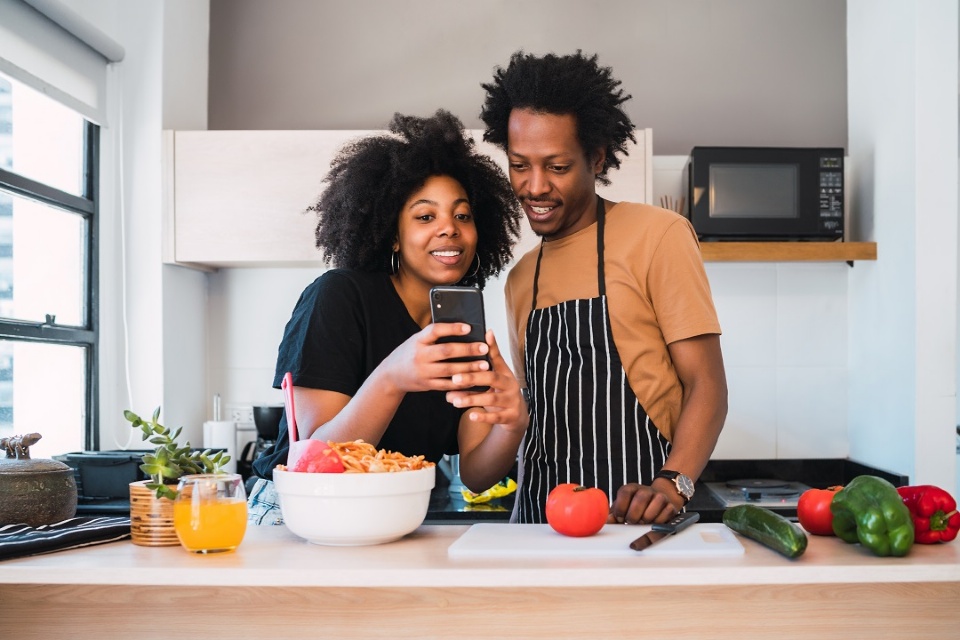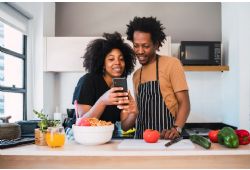If our time in isolation has made one thing clear,
it’s that living in uncertainty – a collective uncertainty at that – can have
repercussions on our mental health and on our relationships. What can those
effects be? How do I nourish my relationships in a positive way?
Living with uncertainty
There are repercussions to living in uncertainty.
Chances are that the longer this wave lasts the more people it will affect and
the graver the consequences will be. Individually we each have a certain level
of tolerance – or intolerance – towards uncertainty. All we can be certain of
is that life is uncertain. The past few weeks have certainly reminded us all of
that. As humans, we tend to want to either control or avoid unwanted
experiences. People who are uneasy with uncertainty will have a tendency to
want to avoid or control it by worrying (trying to figure out all the possible
scenarios, for example).
As time goes on, those who are comfortable with
uncertainty may also start to become uneasy with it and start to worry. Worrying
endlessly actually increases uncertainty. Worrying is used as a way to control
something that is uncontrollable; therefore, it is a fallacy. The more we
worry, the more we create different scenarios in order to gain control over the
uncontrollable. This will create links between scenarios that are based purely
on speculation rather than reality. So how should we cope with uncertainty?
Embrace it!
Embracing uncertainty can allow you to live in the
moment and to develop a psychological flexibility. How? We do this by
introducing uncertainty into our daily lives. All you need to do is switch it
up a little! Eat something new. Go for a walk using a different route. Go to a
different grocery store. Read a new book. Sign up for a different type of
online class. Sit at a different seat at the table. These are all small but
important gestures we can do to embrace uncertainty. We create habits and we
are somewhat comforted by them. The changes mentioned above will allow you to
safely embrace uncertainty (there is no real danger in switching seats) and
allow you to be more flexible and resilient.
Staying connected
Relationships can be tricky - especially in times of
uncertainty - because there are multiple players involved with multiple
possible reactions and levels of tolerance to uncertainty. The advice above
stands. Try something new! Not only will you be exercising your psychological
flexibility together, but you will be creating new memories and experiences as
well. Try a new meal on the floor of the living room! Chances are that’s the
meal you’ll remember. If you aren’t living in the same household, use
videoconferencing to have the meal together or call each other up before and
cook the same meal.
While we may believe that our options are limited, a
whole new world lays ahead of us if we just put forth a little creativity. It
doesn’t take a grand gesture to make great memories. All it takes is a little
something out of the ordinary. Send your partner(s) a card by mail. Have a
movie night. Play board games through your phone or social media. There are
endless ways you can stay connected to your loved ones.
Romance
The challenges are different if you have a partner(s)
or not, are living with your partner(s) or living apart, have children, one on
the way, or none at all. Relationships have different configurations and
realities. Let’s address those realities which are common to most.
Date night
This one has definitely changed for everyone. We are
limited to the confines of our own homes and there may be privacy issues if we
do not live alone. Creativity is very important here. Focus on what you do have
to make things special. Go for dinner at your local backyard eatery. Go for a
drink with a first date on your respective balconies (using technology). All
you need is imagination and sometimes technology.
Communication and conflict
resolution
With uncertainty comes higher levels of stress.
Increased stress can lead to more conflicts. Stress can make someone impatient,
have more disturbed sleep patterns, increase feelings of anxiety and depression
and a general feeling of being overwhelmed or even numbness. All this can make
tensions rise and are ripe for conflicts to appear. What can you do? Work on
reducing individual stress levels. Do things that relax you and bring your
stress levels down. Take a bath. Read a book. Go for a jog. By doing small
things to keep you in a better state of mind, you will be more open and
receptive to those around you.
Improve communication. Communication is key to most
interactions. Learn to be concise and tell those around you what you need and
be mindful of them and their needs. If you are feeling overwhelmed and are
starting to get impatient by your partner’s questions, for example, let them
know you are stressed and feeling overwhelmed. Also let them know you would
like 15 minutes of alone time and that you’ll answer their questions later.
This way, both your needs are fulfilled in a productive manner and you have,
more likely than not, avoided a fight.
There are a multitude of emotions we can feel during this period. Our emotions
are always valid. What’s important to remember is to seek support and help if
you’re feeling overwhelmed. Speak to a loved one. Speak with a professional.
If you are living with
domestic violence contact SOS violence conjugale 1-800-363-9010
or http;//www.sosviolenceconjugale.ca . If you are
in immediate danger dial 911.

 In The Latest Issue:Latest Issue:
In The Latest Issue:Latest Issue:
- A Bittersweet Farewell
- The new Laval Aquatic Co...
- The End of an Era:
Articles
Calendar
Virtual- ANNUAL TEACHER APPRECIATION CONTEST
- APPUI LAVAL
- ARTS & CULTURE
- CAMPS
- CAR GUIDE
- CCIL
- CENTENNIAL ACADEMY
- CHARITY FUNDRAISING
- CITYTV
- COSMODÔME
- COMMUNITY CONNECTIONS
- COVER STORY
- DINA DIMITRATOS
- ÉCOLE SUPÉRIEURE DE BALLET DU QUÉBEC
- EDITORIALS
- ÉDUCALOI
- EDUCATION
- EMPLOYMENT & ENTREPRENEURSHIP
- FÊTE DE LA FAMILLE
- FÊTE DU QUARTIER SAINT-BRUNO
- FAMILIES
- FESTIVAL LAVAL LAUGHS
- FÊTE DE QUARTIER VAL-DES-BRISES
- FINANCES
- GLI CUMBARE
- GROUPE RENO-EXPERT
- HEALTH & WELL-BEING
- 30 MINUTE HIT
- ANXIETY
- CHILDREN`S HEALTH & WELLNESS
- CLOSE AID
- DENTAL WELLNESS
- EXTREME EVOLUTION SPORTS CENTRE
- FONDATION CITÉ DE LA SANTÉ
- GENERAL
- HEARING HEALTH
- MESSAGES FROM THE HEALTH AGENCY OF CANADA
- MENTAL HEALTH
- SEXUALITY
- SOCIAL INTEGRATION
- SPECIAL NEEDS
- TEENS
- THE NUTRITION CORNER
- THE NUTRITION CORNER - RECIPES
- VACATION DESTINATION
- WOMEN'S FITNESS
- WOMEN'S HEALTH
- HILTON MONTREAL/LAVAL
- HOME & GARDEN
- INTERNATIONAL WOMEN'S DAY
- JAGUAR LAVAL
- LAVAL À VÉLO
- LAVAL FAMILIES TV SHOW
- LAVAL FAMILIES MAGAZINE CARES
- LAVAL URBAN IN NATURE
- LE PARCOURS DES HÉROS
- LES PETITS GOURMETS DANS MA COUR
- LEON'S FURNITURE
- LEONARDO DA VINCI CENTRE
- LFM PREMIERES
- LIFE BALANCE
- M.P. PROFILE
- MISS EDGAR'S AND MISS CRAMP'S SCHOOL
- MISSING CHILDREN'S NETWORK
- NETFOLIE
- NORTH STAR ACADEMY LAVAL
- OUTFRONT MEDIA
- PASSION SOCCER
- PARC DE LA RIVIÈRE-DES-MILLE-ÎLES
- PÂTISSERIE ST-MARTIN
- PIZZERIA LÌOLÀ
- PLACE BELL
- PORTRAITS OF YOUR MNA'S
- ROCKET DE LAVAL
- SACRED HEART SCHOOL
- SCOTIA BANK
- SHERATON LAVAL HOTEL
- SOCIÉTÉ ALZHEIMER LAVAL
- STATION 55
- STL
- SUBARU DE LAVAL
- TECHNOLOGY
- TEDXLAVAL
- TODAY`S LAURENTIANS AND LANAUDIÈRE
- TODAY`S LAVAL
- WARNER MUSIC
- THIS ISSUE
- MOST RECENT
Magazine
Embracing Our Relationships in Times of Uncertainty
Articles ~e 105,7 Rythme FM 4 chemins Annual Teacher Appreciation Contest Appui Laval Arts & Culture Ballet Eddy Toussaint Camps THIS ISSUE MORE...
CONTESTS Enter our contests
CONTESTS Enter our contests
CALENDAR
Events & Activities
COMMUNITY Posts Events
PUBLICATIONS Our Magazine Family Resource Directory
LFM BUSINESS NETWORK Learn more
COUPONS Click to save!
COMMUNITY Posts Events
PUBLICATIONS Our Magazine Family Resource Directory
LFM BUSINESS NETWORK Learn more
COUPONS Click to save!
SUBSCRIPTIONS
Subscribe to the magazine
Un-Subscribe
E-NEWSLETTER Subscribe to our E-newsletter Un-Subscribe
WRITE FOR US Guidelines & Submissions
POLLS Vote today!
E-NEWSLETTER Subscribe to our E-newsletter Un-Subscribe
WRITE FOR US Guidelines & Submissions
POLLS Vote today!
ADVERTISERS
How to & Media guide
Pay your LFM invoice
SUGGESTIONS Reader's Survey Suggest a Listing
LFM About Us Our Mission Giving Back Contact Us
SUGGESTIONS Reader's Survey Suggest a Listing
LFM About Us Our Mission Giving Back Contact Us
 PICK-UP LOCATIONS
Get a copy of LFM!
PICK-UP LOCATIONS
Get a copy of LFM!
TERMS & CONDITIONS Privacy | Terms
ISSN (ONLINE) 2291-1677
ISSN (PRINT) 2291-1677
Website by ZENxDESIGN



 BY:
BY: 
Tweet
Share